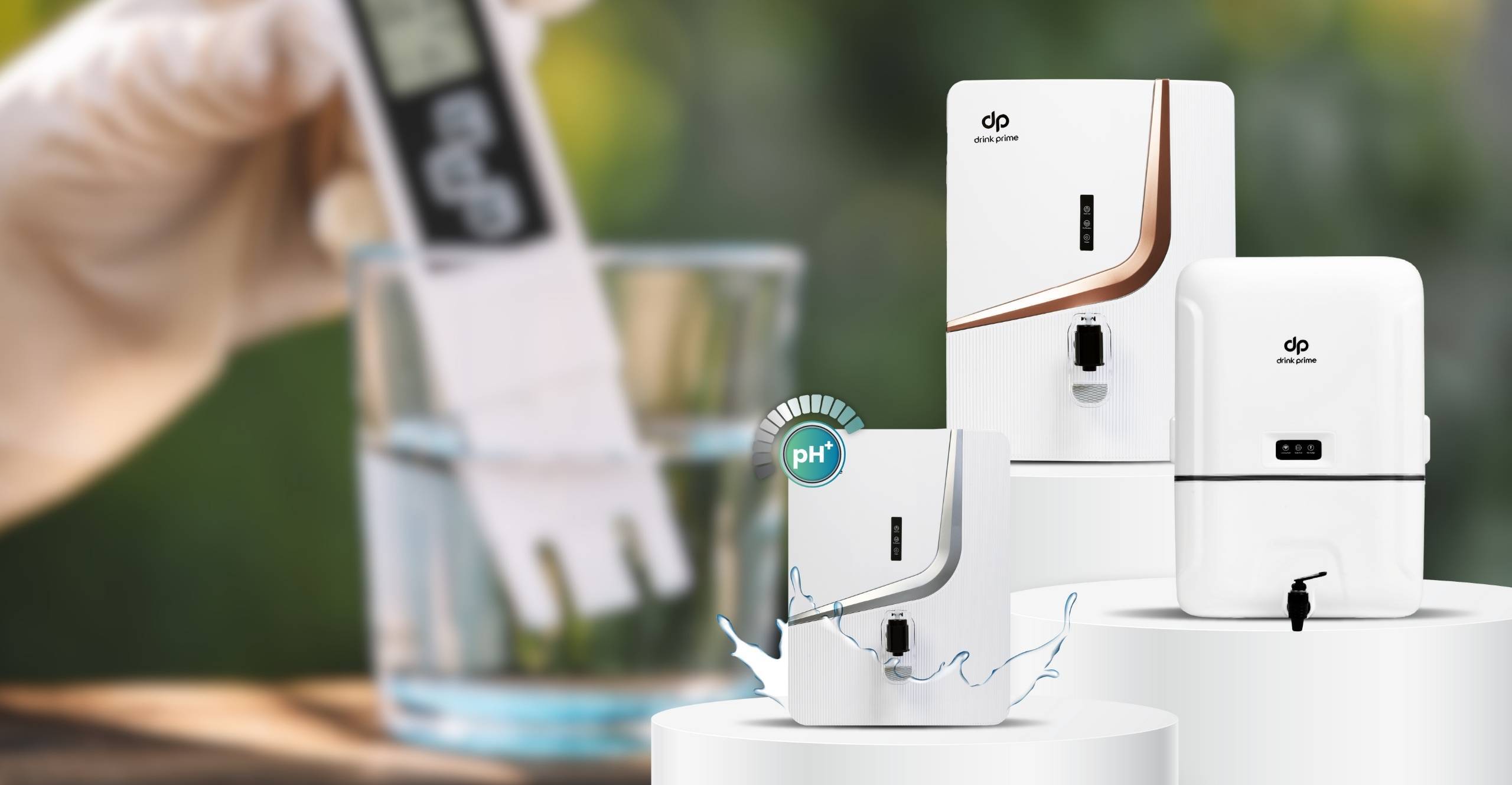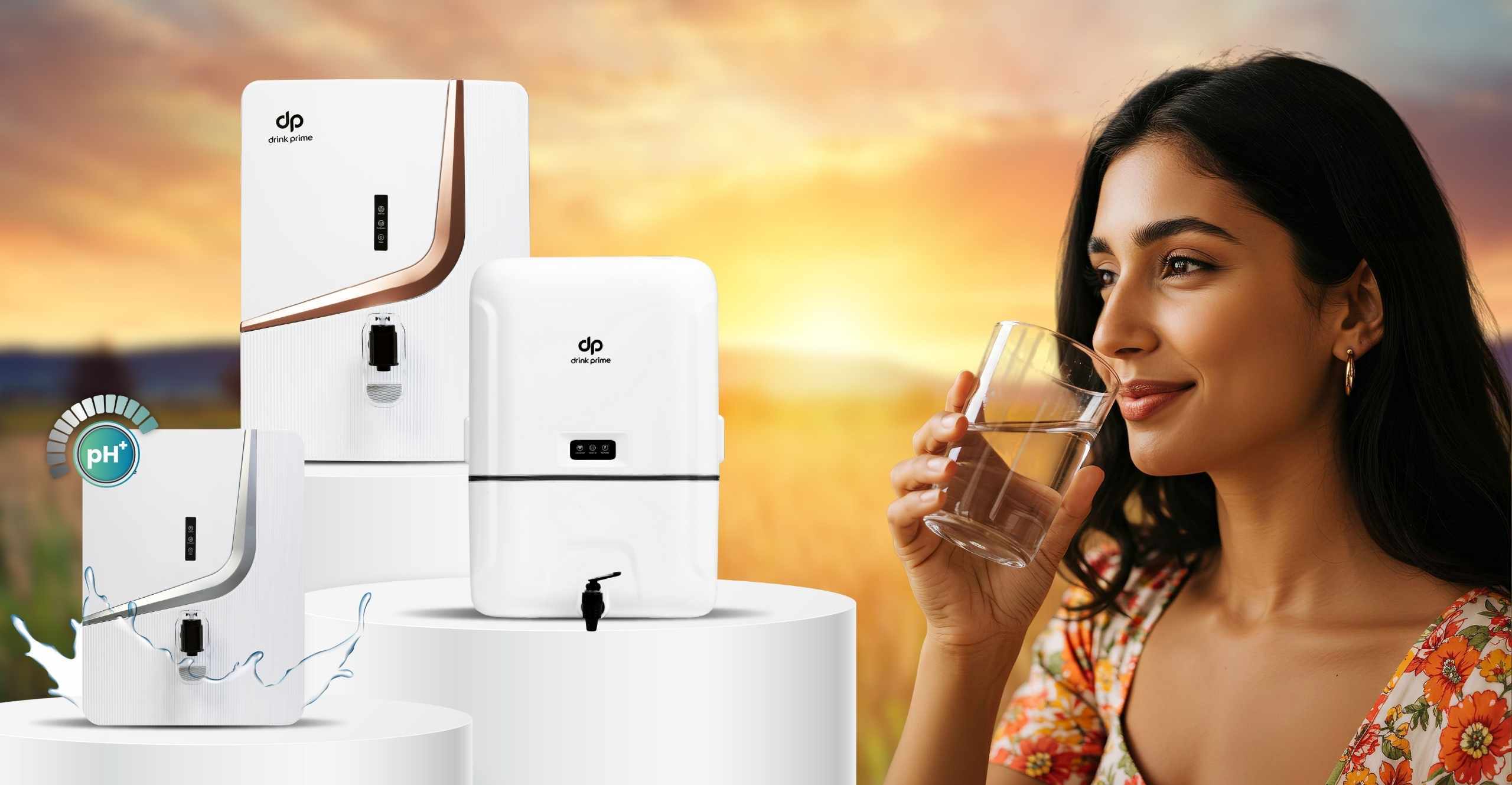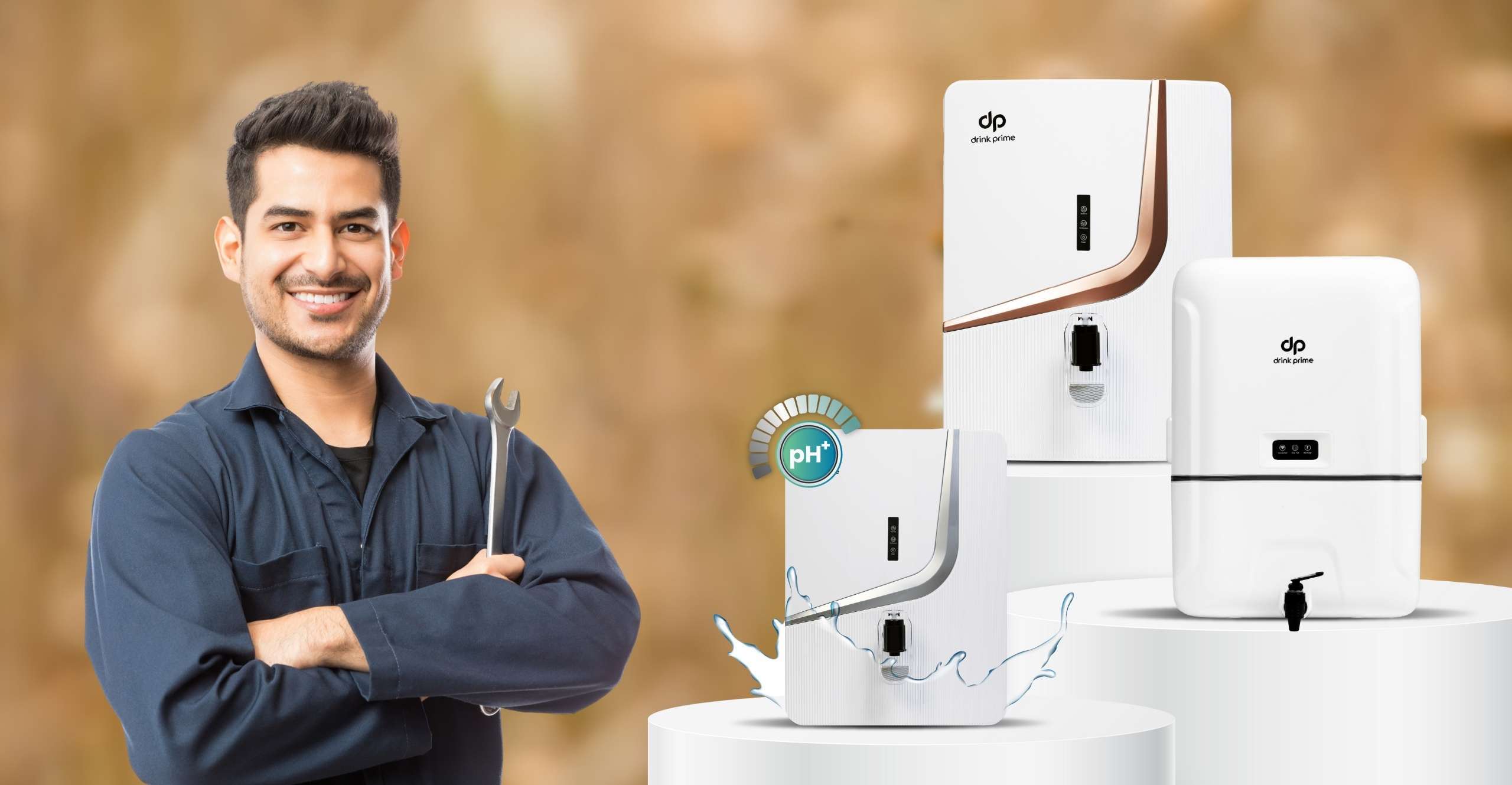Presently, most of us invest in water purifiers due to the rising pollution levels and increasing contaminants in tap water and to ensure the safety of our household’s water supply. Additionally, we all know access to safe, clean, and healthy water is no longer a luxury but a necessity. But on the other hand, water filters that have been gaining a huge demand on the market also claim to provide cleaner, safer water. Water filters and water purifiers are the most common solutions that provide safe and clean water, but choosing one for your household can be a challenging task at times. In this blog, we will understand the key differences between drinking water filters and purifiers, and also we will explore which is the better option for your kitchen.
What are water filters?
A water filter is a device that helps in removing all the impurities from water through a physical barrier, chemical process, or even biological process. Moreover, drinking water is generally used to remove sediment, chlorine, and other physical impurities, hence making water look fresh and smell better.
How does this work?
Additionally, most water filters use several materials to improve water quality by removing specific types of contaminants. Water filters comprise activated carbon, which is commonly used to absorb chlorine, organic compounds, and other chemicals that affect the taste and odor of water. Also, it consists of ceramic filters, which are effective in trapping bacteria and fine particulates, while on the other hand, it is sediment filters that are designed to remove all the large impurities like sand, dirt, and rust. Besides, these filters are generally easy to install and maintain, hence making them a perfect solution for households that receive municipal water. Moreover, they are also a cost-effective option for areas with low levels of contamination, offer basic protection, and improve water taste.
What is a water purifier?
When it comes to water purifiers, it goes a step further by removing biological contaminants like bacteria, viruses, and, in some cases, dissolved impurities as well. Most water purifiers are important in areas where the water is biologically unsafe or contains heavy metals and dissolved salts.
How does it work?
It helps in removing bacteria, viruses, and other harmful microorganisms that are present in the water. Moreover, water purifiers can treat hard water with high TDS levels as well. Also, it provides a higher level of protection for your health.
Water Filter vs. Water Purifier: A Quick Comparison
| Features | Water Filter | Water Purifier |
| Basic Function | Water filters help in removing physical impurities that are present in the water, like dust, rust, and other impurities. | Water purifiers remove all the physical, chemical, and microbiological contaminants. |
| Sediment & Dirt Removal | Water filters effectively remove all the visible particles like sand and dust. | Water purifiers also help in removing sediments along with other harmful impurities. |
| Odor removal and Chlorine | Water filters comprise activated carbon filters, which help in reducing chlorine, and they improve taste. | A water purifier effectively removes all the chlorine and boosts water quality. |
| Bacteria & Virus Removal | Water filters are not designed to remove microorganisms; they only have limited biological protection. | The water purifier comes with a UV lamp and RO technologies to kill or filter out bacteria and viruses. |
| Maintenance Needs | Water filters require low maintenance; filter replacement is occasional and simple. | Water Purifiers requires regular maintenance and periodic replacement of membranes or filters |
| Best For | Water filters are best for homes with relatively clean, pre-treated water supplies. | Water purifiers are best for homes in areas with unsafe or poor-quality water sources. |
Which One Should You Choose?
So, which one to choose? Most of the time, choosing between a water filter and a water purification system completely depends on local water quality. If your water supply is municipally treated and relatively clean, a filter might be sufficient to improve taste and remove physical impurities. And when it comes to a water purifier, if you are receiving water from a borewell or river or have higher TDS, then a water purifier with RO and UV would be a great choice.
Choose DrinkPrime
Most of the traditional water purifiers on the market often come with a hefty price tag, high maintenance costs, and much more. DrinkPrime offers a subscription-based water purifier that’s affordable, convenient, and tech-enabled. With the help of IoT-enabled devices, monitoring water quality and usage in real-time is possible. DrinkPrime also offers free installation, maintenance, and relocation. Moreover, the water purifiers are tailored based on the quality of the water in your area.
Get 7 Days Risk Free Trial
Conclusion
In summary, access to safe and clean drinking water is no longer a matter of convenience but a necessity. While both water filters and water purifiers focus on making water safer for consumption, they serve different purposes depending on the quality of your water source. Additionally, water filters are ideal for homes receiving pre-treated municipal water with minimal contamination, hence offering a basic purification with better taste. On the other hand, water purifiers are important in areas where water contains biological or chemical impurities, high TDS, or heavy metals, providing a higher level of health protection.
So, when choosing between the two, it is important to understand your local water condition and select a solution that best fits your needs and requirements. But, with all traditional water purifiers being so expensive and often inconvenient, DrinkPrime stands out as an ideal choice, since it offers customised purification, free maintenance, and real-time water monitoring.




